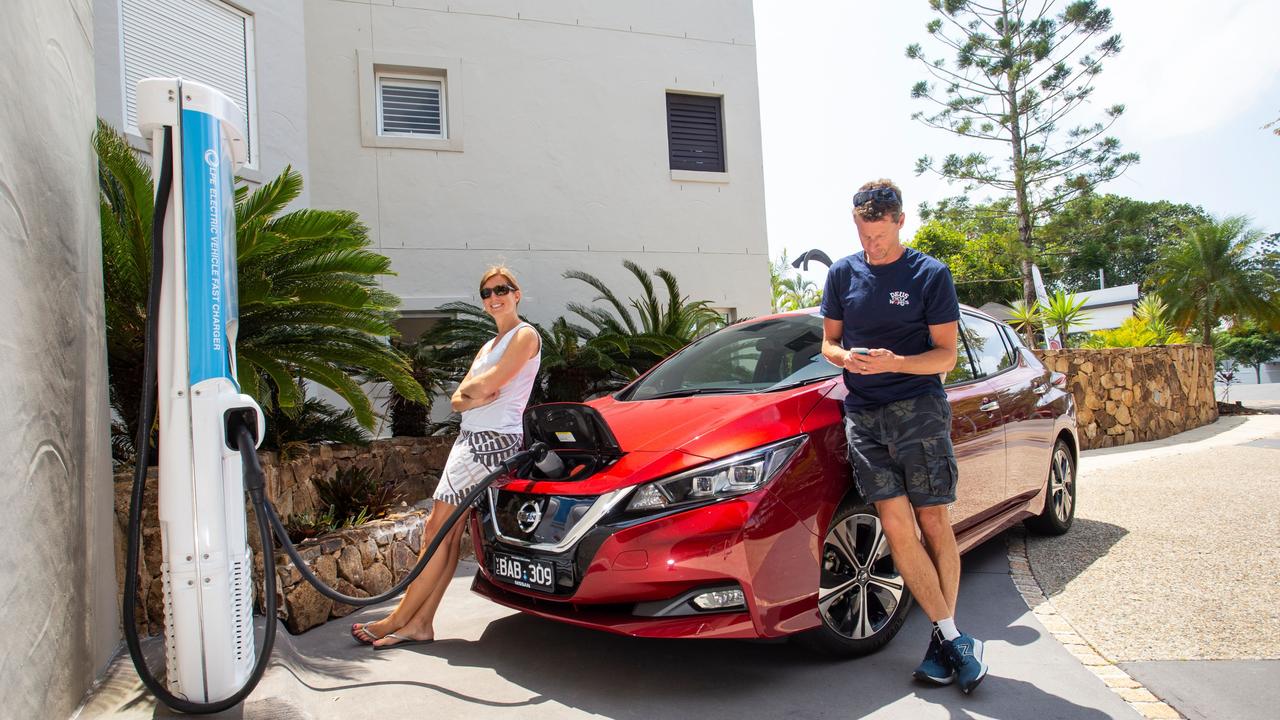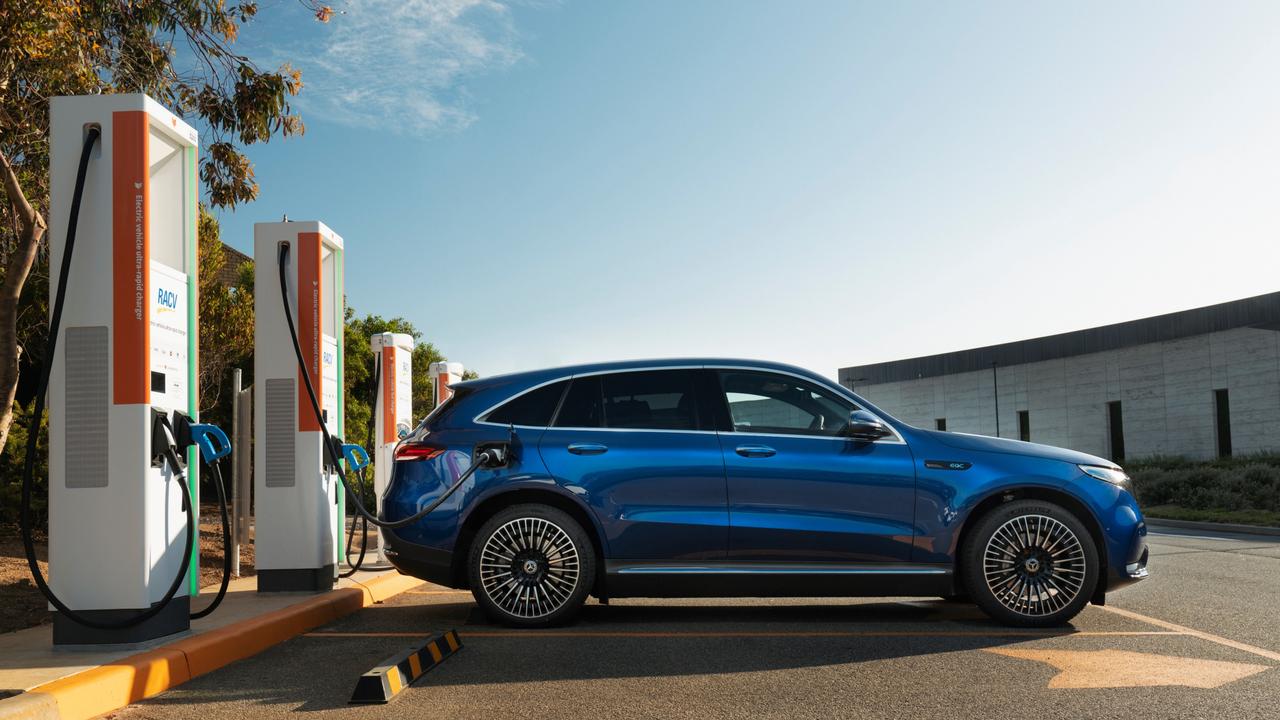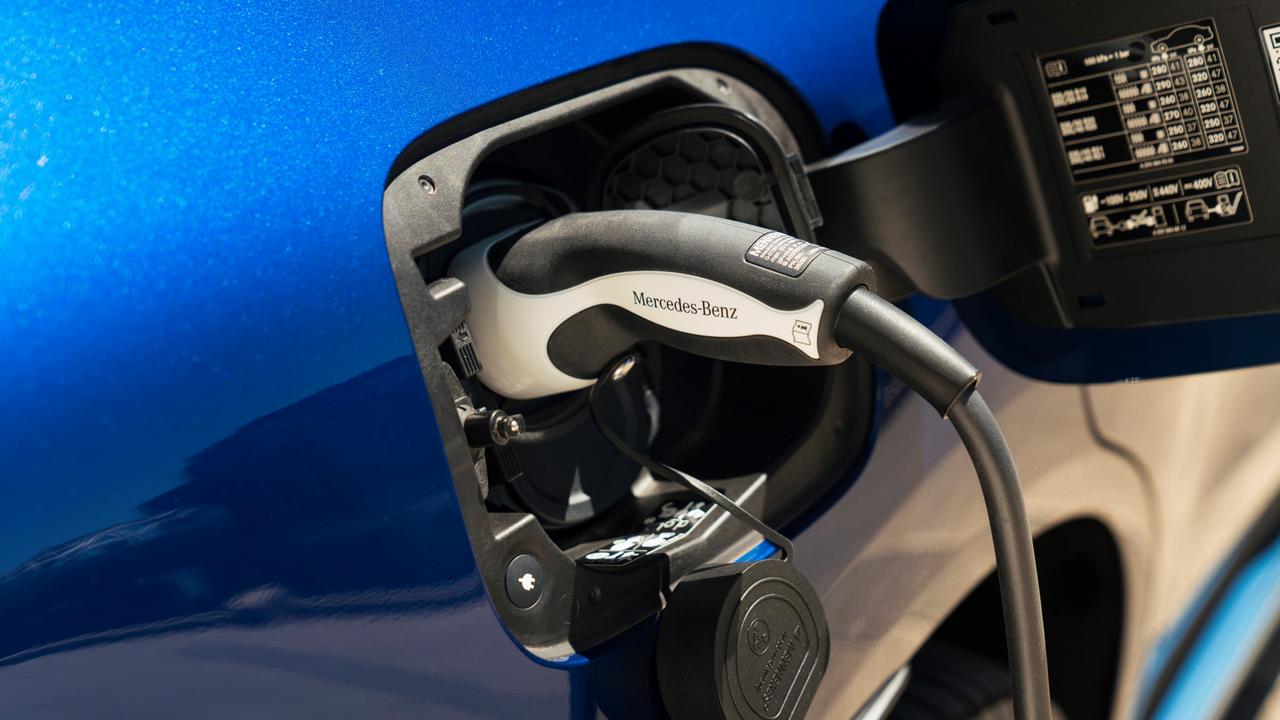‘Beyond belief’: New tax on electric cars slammed
State treasury accused of ‘turning its back on the topic of climate change’ as opposition mounts to controversial new levy on green tech.

Plans to force electric car owners to pay additional fees for road maintenance have been slammed by industry and green motoring bodies.
South Australia treasurer Rob Lucas made headlines on Wednesday with a plan to hit electric car owners with two taxes — an annual levy, and mileage-based fees — to help pay for the state’s road network.
“Electric vehicles do not attract fuel excise and therefore make a lower contribution to the cost of maintaining our road networks,” Mr Lucas said.

“The proposed road user charge will ensure road maintenance funding is sustainable into the future. The government is consulting with other jurisdictions about the details of the proposed road user charge.”
“As more jurisdictions implement similar policies we’re pretty confident that ultimately it’s a no-brainer.”
The tax would come into effect in July for the 2021-22 financial year.
Tony Weber, chief executive for the Federal Chamber of Automotive Industries, said the South Australian government’s plans were “beyond belief”.
“All around the world, developed countries recognise the environmental and health benefits of low and zero emission vehicles,” he said.

“These countries encourage the uptake of LZEVs through incentivisation and the deployment of infrastructure.
“With its proposal to tax LZEVs through a road-user charging tariff, South Australia is discouraging the uptake of environmentally friendly motoring and is turning its back on the topic of Climate Change.
“We believe this charge will make South Australia the only jurisdiction in the world that actually opposes the uptake of low and zero emission vehicles.”

Electric Vehicle Council chief executive Behyad Jafari said the proposed taxes were like responding to a drop in tobacco revenue by putting an excise on nicotine gum.
“If the revenue from fuel excise is falling because South Australians are burning less foreign oil, that should be considered a blessing,” Mr Jafari said.
“Overall it’s good for air quality, it’s good for the health budget, it’s good for carbon emissions, and it’s great for economic sovereignty.
“The last thing any sane government would do is try to hit the brakes on this trend.”
Mr Jafari said the SA Government was unlikely to reach carbon emissions targets while penalising people for choosing green cars.
“The state is currently at less than one per cent electric vehicle uptake and now they want to introduce the world’s first EV tax,” he said.
“There’s little point spending $18 million on charging infrastructure if you are actively discouraging people from buying the vehicles that can use it.”

Electric cars are already significantly more expensive than conventional vehicles, with basic hatchbacks such as the battery-powered Nissan Leaf priced from about $50,000 drive-away, or roughly double that of a conventionally powered alternative.
Luxury models such as the Mercedes-Benz EQC and Audi e-tron cost about $150,000 drive-away, significantly more than equivalent petrol or diesel models.
Several manufacturers have postponed launches of electric cars in Australia as there is little incentive for customers to choose them. Electric cars are cheaper in Europe, where government incentives and severe penalties for manufacturers’ missed carbon targets have resulted in lease deals for new electric vehicles as low as $20 per week.

Some have praised the government’s approach, though.
Michael Bradley, managing director of the Australian Automobile Association representing motoring clubs such as the RACV, NRMA and RACQ, said it was right to take action.
“The South Australian Government deserves to be congratulated on taking a position of leadership and for taking on a tax reform that has for too long sat in the too-hard basket,” Mr Bradley said.
“Ensuring all drivers contribute to the transport projects we all need makes our tax system more sustainable and more equitable, however a state-by-state approach to what in reality is a national road network and a national market, brings risks.
“Inconsistent approaches risk unnecessary cost, inequity, and confusion.
“This is a critically important reform and one that the federal government needs to take an interest in to ensure changes are made consistently, equitably, and in a manner that does not disincentivise technological transition.”



